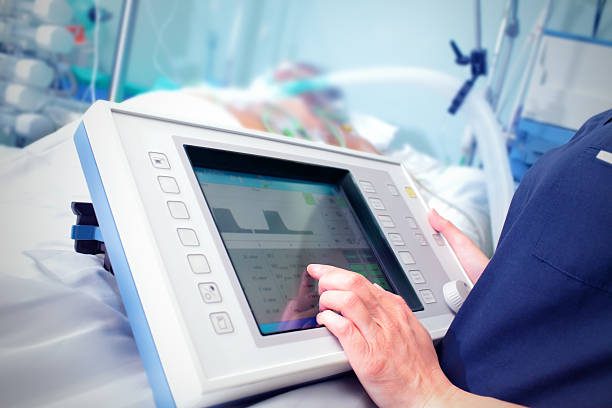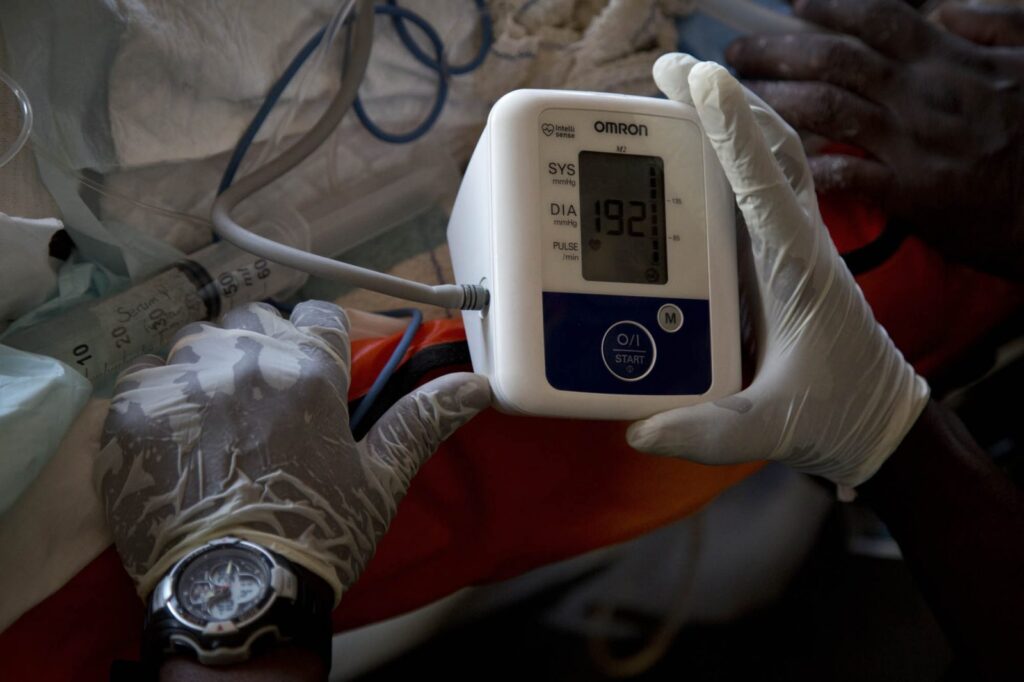The Covid 19 pandemic has taught the world one important lesson: it’s crucial to enhance our disease surveillance capacities. Early on during the pandemic, health workers and governments were finding it hard to track the disease, map vulnerable populations and develop efficient mitigation strategies.
The net result was the spread of Covid 19, mass hospitalizations, and sadly death. Thankfully though, there’s a cost-effective way health workers can boost disease surveillance and mapping capacities. Upskilling and reskilling.
Upskilling health workers plays a crucial role in boosting disease surveillance by enhancing their abilities and knowledge in various aspects of public health and epidemiology. But first, what’s disease surveillance and how does upskilling enhance it?
Contents
- 1 Understanding Disease Surveillance
- 2 How Upskilling Enhances Disease Surveillance and Mapping
- 2.1 It Enhances Data Collection and Reporting in Surveillance
- 2.2 Upskilling Improves Epidemiological Knowledge
- 2.3 It Aids Laboratory Proficiency
- 2.4 Upskilling Enhances Effective Technology Utilization
- 2.5 It Enhances Communication and Reporting Skills
- 2.6 Community Engagement
- 2.7 Timely Response to Outbreaks
- 2.8 Efficient Resource Allocation
- 3 Key Take-Aways
Understanding Disease Surveillance
Disease surveillance is the systematic process of monitoring, collecting, analyzing, interpreting, and disseminating data related to the occurrence and spread of diseases within a population.
The primary goal of disease surveillance is to detect and track the emergence or re-emergence of diseases, identify outbreaks, and assess their impact on public health. Consequently, it’s a critical component of public health systems worldwide and plays a pivotal role in preventing and controlling the spread of infectious diseases.
Key aspects of disease surveillance include:
1. Data Collection. Disease surveillance begins with the systematic collection of data from various sources. These sources can include healthcare facilities, laboratories, healthcare providers, community health workers, and even the general public. Data may encompass clinical symptoms, laboratory results, demographic information, and geographic location.
Read Also: How Mobile Data Collection Revolutionizes Healthcare
2. Data Reporting. Collected data is reported to public health authorities at local, regional, national, or international levels, depending on the scope of the surveillance program. Timeliness and accuracy in reporting are crucial to enable a rapid response to potential outbreaks.
3. Data Analysis. Health officials and epidemiologists analyze the collected data to identify trends, patterns, and anomalies. This analysis helps in recognizing clusters of diseases, unusual occurrences, and changes in disease patterns over time.
Read Also: How ODK Aids Data Collection
4. Interpretation. Epidemiologists and experts interpret the data to draw meaningful conclusions. They assess whether a cluster of cases represents a localized outbreak or a more widespread epidemic, and they evaluate the severity of the situation.


5. Monitoring and Evaluation. Surveillance is an ongoing process. Health officials continuously monitor disease trends and the effectiveness of control measures. Regular evaluation helps in adapting strategies as needed.
Types of Disease Surveillance
1. Passive Surveillance. In passive surveillance, healthcare providers and laboratories voluntarily report cases to public health authorities. It is the most common form of surveillance and relies on healthcare professionals recognizing and reporting cases as they occur.
2. Active Surveillance. Active surveillance involves proactive efforts to seek out cases of a specific disease. Health workers may conduct targeted surveys, screenings, or monitoring of specific populations to detect cases early.
3. Sentinel Surveillance. Sentinel surveillance focuses on a selected group of healthcare facilities or sites. These sites are chosen because they are representative of the larger population. Data collected from sentinel sites can provide insights into disease trends across a broader area.
4. Syndromic Surveillance. Syndromic surveillance monitors symptoms and clinical indicators rather than confirmed diagnoses. It is often used for early detection of outbreaks when laboratory confirmation may take time.
5. Event-Based Surveillance. Event-based surveillance involves monitoring unusual events or signals that may indicate a disease outbreak or public health emergency. These events can include rumors, media reports, or spikes in certain health-related activities.
Read Also: The Power of GIS in HIV/AIDS Surveillance


How Upskilling Enhances Disease Surveillance and Mapping
It Enhances Data Collection and Reporting in Surveillance
Health workers are often the first point of contact for individuals seeking healthcare services. Upskilling programs train them to collect relevant and accurate data during patient interactions. This includes recognizing unusual symptoms, identifying potential disease outbreaks, and documenting cases with precision. The improved data collection ensures that crucial information reaches public health authorities promptly, facilitating early intervention.
Upskilling Improves Epidemiological Knowledge
Understanding the principles of epidemiology is fundamental to disease surveillance. Upskilled health workers are equipped with the knowledge to recognize patterns of disease spread, calculate incidence rates, and identify potential clusters or outbreaks. Their improved epidemiological skills enable them to differentiate between sporadic cases and those that may indicate emerging public health threats.
It Aids Laboratory Proficiency
Laboratory technicians and scientists are integral to disease surveillance efforts. Upskilling programs focus on enhancing their laboratory skills, including the latest diagnostic techniques. Well-trained laboratory professionals can quickly and accurately identify pathogens responsible for diseases, enabling faster and more accurate diagnoses.
Upskilling Enhances Effective Technology Utilization
Modern disease surveillance heavily relies on technology, including electronic health records, data management systems, and geographic information systems (GIS). Upskilling programs ensure that health workers are proficient in using these technologies. They can efficiently process and analyze data, create maps for disease tracking, and visualize trends, facilitating more effective surveillance.
It Enhances Communication and Reporting Skills
Effective communication is vital in disease surveillance. Upskilled health workers are trained to report their findings and concerns to public health agencies and the community clearly and promptly. Their ability to communicate effectively aids in the dissemination of health information, ensuring that the community is well-informed and engaged in disease control measures.


Community Engagement
Health workers often serve as a bridge between public health authorities and the community. When upskilled in disease surveillance, they can engage with communities more effectively. They can explain the importance of early symptom reporting, seeking timely treatment, participating in vaccination campaigns, or adhering to preventive measures. This community engagement fosters trust and cooperation, which are essential for effective surveillance and control.
Timely Response to Outbreaks
Well-trained health workers can identify unusual disease trends or clusters of cases promptly. This early detection is critical for public health authorities to respond rapidly, implementing containment measures and preventing further spread of diseases. Upskilled health workers contribute to more efficient outbreak investigations, including contact tracing and risk assessments, allowing for quicker response and control.
Efficient Resource Allocation
Accurate and timely data from upskilled health workers enable health authorities to allocate resources strategically. This ensures that limited resources, such as vaccines, medical supplies, and healthcare personnel, are distributed to the areas and populations where they are needed most during outbreaks and emergencies.
Key Take-Aways
In conclusion, upskilling health workers empowers them with the knowledge and skills needed to actively participate in disease surveillance. Their enhanced abilities in data collection, analysis, technology utilization, and communication collectively strengthen the overall capacity for disease surveillance, early detection and effective response, thereby leading to improved public health outcomes.
To effectively help healthcare and social workers take charge of impactful disease surveillance programs, Indepth Research Institute (IRES) provides tailor-made disease surveillance programs. These programs are specially developed to strengthen your capacity for surveillance and control of public health risks like diseases and outbreaks. With our expert-led training modules, your support staff will gain the confidence and competence to navigate the digital landscape with ease. Register today and be the change your community needs.
I’m a passionate communications professional with a flair for crafting compelling brand stories and driving impactful communications and marketing campaigns. With a background in public relations (PR) and marketing, I help shape narratives in today’s fast-paced digital landscape.








Comment here